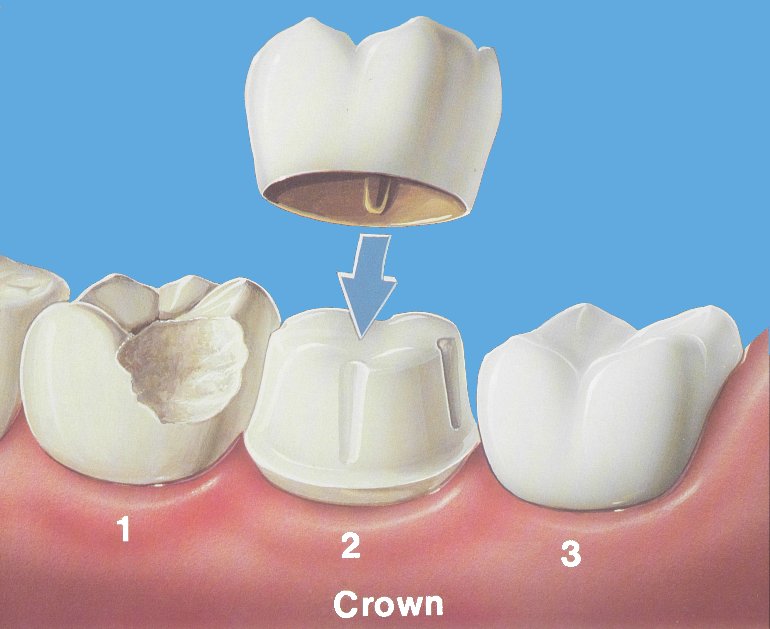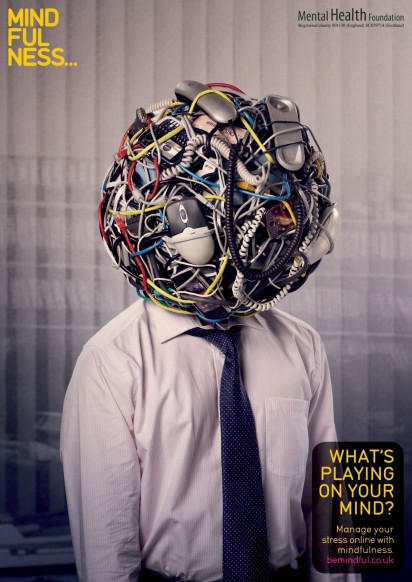How to Lose Weight Without Giving up Your Favorite Foods

Losing weight often feels like a battle between your goals and your cravings. The idea of giving up your favorite foods can be discouraging, making it harder to stick to a healthy plan. However, sustainable weight loss doesn’t have to mean extreme diets or saying goodbye to the meals you love. By focusing on balance, portion control, and smart choices, it’s possible to shed pounds while still enjoying the flavors you crave. This guide will show you how to lose weight without sacrificing the foods that make you happy.
Understanding Macronutrients and Calories

Macronutrients are the foundation of our diet. They include carbohydrates, proteins, and fats. Each plays a crucial role in how we function daily. Carbohydrates provide energy. They fuel our workouts and keep us active throughout the day. Not all carbs are the same though; whole grains and fruits offer more nutrients than sugary snacks. Some even say that Ginger Slim Ingredients must also be included for an effective diet. Proteins are essential for muscle repair and growth. Including lean meats, legumes, or dairy can help you stay satisfied longer without overeating.
Fats often get a bad rap but are necessary for hormone production and nutrient absorption. Healthy fats from avocados, nuts, or olive oil can enhance your meals while supporting overall health. Understanding calories is just as important. Every food item has an energy value measured in calories. To lose weight sustainably, balancing calorie intake with what you burn through daily activities and exercise is vital.
Incorporating Exercise Into Your Routine
Finding time for exercise can feel daunting. However, small changes to your routine can make a big difference. Start by identifying pockets of time throughout your day. Consider walking during lunch breaks or opting for stairs instead of elevators. These little steps add up quickly and keep you active without needing a gym visit. You might also explore activities you enjoy. Dancing, swimming, or even gardening can burn calories while making workouts enjoyable. Set realistic goals to maintain motivation. Aim for consistency over intensity—short sessions are better than none at all. Incorporating friends or family into your fitness journey can also provide extra encouragement. Group workouts often lead to laughter and fun, making it easier to stick with it long-term.
Eating Mindfully and Intuitively

Mindful eating is about awareness. It encourages you to savor each bite, fully appreciating flavors and textures. This practice can transform the way you view your meals. When you eat slowly, signals from your body become clearer. You start recognizing hunger cues more effectively. Often, we consume food without paying attention, leading to overeating. Portion control plays a vital role here. Use smaller plates or bowls to help manage serving sizes naturally. This simple switch can make a significant difference in calorie intake while still allowing enjoyment of your favorite foods.
Listen to your body’s responses during meals. Are you satisfied? Or are you mindlessly finishing what’s on your plate? Tuning into these feelings promotes healthier choices and better weight management without deprivation. The blend of mindful eating with portion control fosters a balanced relationship with food that supports long-term success in achieving your weight goals.…












 The nutrients and compounds found in Turkey Tail Mushroom Supplement are best absorbed when the supplement is taken with food. Therefore, it is recommended to take your dose of Turkey Tail Mushroom Supplement at mealtime for optimal absorption.
The nutrients and compounds found in Turkey Tail Mushroom Supplement are best absorbed when the supplement is taken with food. Therefore, it is recommended to take your dose of Turkey Tail Mushroom Supplement at mealtime for optimal absorption.
 Choosing an experienced Ultherapy provider is crucial to achieving optimal results. Ensure that your provider is well-trained in the treatment and has a good reputation for delivering high-quality results. Ask to see before-and-after photos of previous patients and read online reviews to understand their experience and expertise.By choosing an experienced provider, you can ensure that you receive the highest-quality treatment possible and get the most out of your Ultherapy session.
Choosing an experienced Ultherapy provider is crucial to achieving optimal results. Ensure that your provider is well-trained in the treatment and has a good reputation for delivering high-quality results. Ask to see before-and-after photos of previous patients and read online reviews to understand their experience and expertise.By choosing an experienced provider, you can ensure that you receive the highest-quality treatment possible and get the most out of your Ultherapy session.
 While Ultherapy is an effective treatment, it does take time to see results. The collagen production stimulated by the treatment takes several weeks to develop fully, so don’t expect to see immediate results. Be patient and give your skin time to heal and rejuvenate following your Ultherapy treatment. In most cases, you’ll see gradual improvements in your skin’s firmness and texture over several weeks or months, so keep a positive attitude and be patient as you wait for the full benefits of your
While Ultherapy is an effective treatment, it does take time to see results. The collagen production stimulated by the treatment takes several weeks to develop fully, so don’t expect to see immediate results. Be patient and give your skin time to heal and rejuvenate following your Ultherapy treatment. In most cases, you’ll see gradual improvements in your skin’s firmness and texture over several weeks or months, so keep a positive attitude and be patient as you wait for the full benefits of your 

 Our mental health needs change as we get older too. We may find it harder to concentrate, remember things or make decisions. We may feel anxious or depressed. These changes are often a normal part of aging but can be worsened by social isolation, grief, or other life stressors. It’s important to keep mentally active by doing things we enjoy, learning new skills, and spending time with friends and family. If we’re feeling down or struggling to cope, talking to a professional can help.
Our mental health needs change as we get older too. We may find it harder to concentrate, remember things or make decisions. We may feel anxious or depressed. These changes are often a normal part of aging but can be worsened by social isolation, grief, or other life stressors. It’s important to keep mentally active by doing things we enjoy, learning new skills, and spending time with friends and family. If we’re feeling down or struggling to cope, talking to a professional can help. Aging can bring emotional challenges as well as
Aging can bring emotional challenges as well as 

 Another mistake that people make is choosing the cheapest trainer they can find. It’s important to remember that you get what you pay for. A cheaper trainer may not have the experience or knowledge to help you reach your fitness goals. In addition, a more inexpensive trainer may not be as invested in your success. It’s important to find a affordable and qualified trainer to help you reach your goals.
Another mistake that people make is choosing the cheapest trainer they can find. It’s important to remember that you get what you pay for. A cheaper trainer may not have the experience or knowledge to help you reach your fitness goals. In addition, a more inexpensive trainer may not be as invested in your success. It’s important to find a affordable and qualified trainer to help you reach your goals. Finally, some people aren’t honest about their fitness level. It’s essential to be honest with your trainer about your fitness level, so they can customize a workout plan that is right for you. If you try to hide your fitness level, you may injure yourself or not see the desired results. When choosing a personal trainer, it is essential to do your research to find the most suitable option. It is also important to be honest about your fitness level so the trainer can cater to your needs. Finally, ensure you have specific goals in mind to track your progress. You will be more likely to succeed with your trainer by avoiding these mistakes.…
Finally, some people aren’t honest about their fitness level. It’s essential to be honest with your trainer about your fitness level, so they can customize a workout plan that is right for you. If you try to hide your fitness level, you may injure yourself or not see the desired results. When choosing a personal trainer, it is essential to do your research to find the most suitable option. It is also important to be honest about your fitness level so the trainer can cater to your needs. Finally, ensure you have specific goals in mind to track your progress. You will be more likely to succeed with your trainer by avoiding these mistakes.…
 After your surgery, you’ll have pretty big gaps in your mouth where your teeth used to be. This can make it difficult to eat solid foods, and that’s why it’s essential to stick to a soft diet in the days immediately following your procedure. Soup, mashed potatoes, eggs, and yogurt are all excellent options. You should also avoid crunchy or hard foods like chips, pretzels, nuts, and sticky foods like caramel or gum. And while you’re at it, try to eat smaller meals more often throughout the day instead of three large ones.
After your surgery, you’ll have pretty big gaps in your mouth where your teeth used to be. This can make it difficult to eat solid foods, and that’s why it’s essential to stick to a soft diet in the days immediately following your procedure. Soup, mashed potatoes, eggs, and yogurt are all excellent options. You should also avoid crunchy or hard foods like chips, pretzels, nuts, and sticky foods like caramel or gum. And while you’re at it, try to eat smaller meals more often throughout the day instead of three large ones.
 The most common type of rotator cuff surgery is an open rotator cuff repair. This type of surgery can treat a tear in the rotator cuff tendons. The surgeon will make an incision in the shoulder and then reattach the torn tendon to the bone. Also, the surgeon may need to remove damaged tissue or bone spurs. This type of surgery usually requires one or two days of hospital stay. The benefits of an open rotator cuff repair include a quicker recovery time and a lower risk of re-injury.
The most common type of rotator cuff surgery is an open rotator cuff repair. This type of surgery can treat a tear in the rotator cuff tendons. The surgeon will make an incision in the shoulder and then reattach the torn tendon to the bone. Also, the surgeon may need to remove damaged tissue or bone spurs. This type of surgery usually requires one or two days of hospital stay. The benefits of an open rotator cuff repair include a quicker recovery time and a lower risk of re-injury. Mini open rotator cuff repair is a less invasive type of surgery that is used to treat small tears in the rotator cuff tendons. The surgeon will make a small incision in the shoulder and then insert a camera into the shoulder joint.
Mini open rotator cuff repair is a less invasive type of surgery that is used to treat small tears in the rotator cuff tendons. The surgeon will make a small incision in the shoulder and then insert a camera into the shoulder joint.
 LSD stands for the Lysergic Acid Diethylamide. This drug is one of the most potent hallucinogens known to man, with LSD-induced effects felt within about 30 minutes and lasting for up to 12 hours. LSD is a colorless, odorless, tasteless substance that comes in forms such as capsules or tablets – typically sugar cubes dipped in LSD solution – or it can be absorbed through paper. In many places, people call this drug several names. These names include Looney tunes, Boomers, Acids, and Yellow Sunshine. The legality of this drug remains unclear.
LSD stands for the Lysergic Acid Diethylamide. This drug is one of the most potent hallucinogens known to man, with LSD-induced effects felt within about 30 minutes and lasting for up to 12 hours. LSD is a colorless, odorless, tasteless substance that comes in forms such as capsules or tablets – typically sugar cubes dipped in LSD solution – or it can be absorbed through paper. In many places, people call this drug several names. These names include Looney tunes, Boomers, Acids, and Yellow Sunshine. The legality of this drug remains unclear. Also, you must choose the right LSD Products. You can try to buy LSD online, but it’s hard to find LSD for sale nowadays. That’s because LSD is illegal in most countries around the world. But there are other ways you can take LSD, including through methods that do not involve ingestion or injection into your body! You can use a vaporizer pen that turns liquid LSD into an inhalable substance instead of ingesting LSD in some form. You can also use LSD orally, which is the most popular method of using LSD by far! You need to make sure you’re buying LSD from a reputable vendor who sells genuine LSD products that are not cut with other substances or impure!
Also, you must choose the right LSD Products. You can try to buy LSD online, but it’s hard to find LSD for sale nowadays. That’s because LSD is illegal in most countries around the world. But there are other ways you can take LSD, including through methods that do not involve ingestion or injection into your body! You can use a vaporizer pen that turns liquid LSD into an inhalable substance instead of ingesting LSD in some form. You can also use LSD orally, which is the most popular method of using LSD by far! You need to make sure you’re buying LSD from a reputable vendor who sells genuine LSD products that are not cut with other substances or impure!
 When finding the best place to buy your favorite LSD online, consider researching for reputable online dispensaries to get quality products for a fantastic trip experience. With the many online stores selling LSD, it is essential to search for a reliable vendor. You can achieve this by selecting an online dispensary that has been operational for so many years. Consider checking for the alternative payment methods they use and if they are convenient in their delivery time to ensure you pay for your products and get them delivered at your doorstep when you need them. Finally, check whether the online store has a website to check for customer reviews to understand the customer experience when dealing with the supplier.
When finding the best place to buy your favorite LSD online, consider researching for reputable online dispensaries to get quality products for a fantastic trip experience. With the many online stores selling LSD, it is essential to search for a reliable vendor. You can achieve this by selecting an online dispensary that has been operational for so many years. Consider checking for the alternative payment methods they use and if they are convenient in their delivery time to ensure you pay for your products and get them delivered at your doorstep when you need them. Finally, check whether the online store has a website to check for customer reviews to understand the customer experience when dealing with the supplier. When choosing the best LSD seller, it is essential to identify the best product that you feel will satisfy your trip needs. If you want to buy your favorite LSD, you need to choose the right product that you think will suit your needs. Different LSD variants will give different trip experiences because they have various strengths. Therefore, it is essential to know what to expect from different LSD products before choosing the suitable one to suit your needs.
When choosing the best LSD seller, it is essential to identify the best product that you feel will satisfy your trip needs. If you want to buy your favorite LSD, you need to choose the right product that you think will suit your needs. Different LSD variants will give different trip experiences because they have various strengths. Therefore, it is essential to know what to expect from different LSD products before choosing the suitable one to suit your needs.
 The most straightforward and most evident advantage of LASIK is why so many people choose this procedure. Anyone who has struggled for years with refractive vision problems will find the freedom to get up, get out of bed and see the world around them appealing. After laser eye surgery, you will see the world in a new way.
The most straightforward and most evident advantage of LASIK is why so many people choose this procedure. Anyone who has struggled for years with refractive vision problems will find the freedom to get up, get out of bed and see the world around them appealing. After laser eye surgery, you will see the world in a new way. The stabilization phase lasts about three months after laser eye surgery. After the stabilization phase, LASIK results are permanent. The improvement in vision should last a lifetime, despite the possible effects of aging, trauma, or other factors. Except in cases where the eye has been damaged or corrected, the procedure does not need to be repeated. The patient’s improved vision is maintained without any loss due to age or disease.
The stabilization phase lasts about three months after laser eye surgery. After the stabilization phase, LASIK results are permanent. The improvement in vision should last a lifetime, despite the possible effects of aging, trauma, or other factors. Except in cases where the eye has been damaged or corrected, the procedure does not need to be repeated. The patient’s improved vision is maintained without any loss due to age or disease.
 The first factor that will be crucial in helping you find an ideal occupational health provider is communication. Although some people may see communication as a non-essential factor, it will play a significant role in the long run. It would be best to choose an occupational health provider that is reliable when it comes to commutation.
The first factor that will be crucial in helping you find an ideal occupational health provider is communication. Although some people may see communication as a non-essential factor, it will play a significant role in the long run. It would be best to choose an occupational health provider that is reliable when it comes to commutation. It is also crucial to consider the kind of facilities that an occupational health provider has. As an employer, you should strive to ensure that your employees get the best health care. Before selecting any occupational health provider, it is vital to ensure that you check their health facilities.
It is also crucial to consider the kind of facilities that an occupational health provider has. As an employer, you should strive to ensure that your employees get the best health care. Before selecting any occupational health provider, it is vital to ensure that you check their health facilities. You should also research how long an occupational health provider has been operating. It will be best if you consider occupational health providers that have lost experience working with a business that is similar to yours. When it comes to health care, experience tends to guarantee great results. Apart from experience, you should consider the qualifications that an occupational health provider has obtained.
You should also research how long an occupational health provider has been operating. It will be best if you consider occupational health providers that have lost experience working with a business that is similar to yours. When it comes to health care, experience tends to guarantee great results. Apart from experience, you should consider the qualifications that an occupational health provider has obtained.
 One Of the main health problems that are caused by eating the wrong foods is being overweight. It is crucial to note that many people these days are not engaging in physically demanding activities daily. This, combined with a poor diet, is bound to make someone overweight. In addition, most of the fast and comfort foods people prefer to eat these days tend to be rich in carbs. As we all know, a carbohydrate-rich diet is most likely to promote weight gain.
One Of the main health problems that are caused by eating the wrong foods is being overweight. It is crucial to note that many people these days are not engaging in physically demanding activities daily. This, combined with a poor diet, is bound to make someone overweight. In addition, most of the fast and comfort foods people prefer to eat these days tend to be rich in carbs. As we all know, a carbohydrate-rich diet is most likely to promote weight gain. It is crucial to note that dental health is important, and it is a shame that many people do not take care of their teeth. Good dental health will do more than just giving you a great smile, and you should strive to improve your oral health. It is crucial to note that the foods you consume regularly will be essential in determining your dental health.
It is crucial to note that dental health is important, and it is a shame that many people do not take care of their teeth. Good dental health will do more than just giving you a great smile, and you should strive to improve your oral health. It is crucial to note that the foods you consume regularly will be essential in determining your dental health.
 If you face problems, such as jaw misalignment, it is quite difficult to chew your food right. As a result, it becomes challenging to digest food properly. Fortunately, you can correct this problem with the help of dental braces. By aligning teeth properly, chewing becomes more effective and more comfortable. Thus, when food is chewed properly, digestion becomes easier.
If you face problems, such as jaw misalignment, it is quite difficult to chew your food right. As a result, it becomes challenging to digest food properly. Fortunately, you can correct this problem with the help of dental braces. By aligning teeth properly, chewing becomes more effective and more comfortable. Thus, when food is chewed properly, digestion becomes easier. she decides to become a mother is by far the highlight of this list. Motherhood is increasingly left for later. Difficulties in finding a partner, professional development as a priority, economic stability, and challenges in reconciling work with family life have undoubtedly caused the average age of women to have their first child to exceed 30 years. Currently, 33% of children born are of women over 35 years. An age when fertility is not optimal. On the contrary: its decline begins.
she decides to become a mother is by far the highlight of this list. Motherhood is increasingly left for later. Difficulties in finding a partner, professional development as a priority, economic stability, and challenges in reconciling work with family life have undoubtedly caused the average age of women to have their first child to exceed 30 years. Currently, 33% of children born are of women over 35 years. An age when fertility is not optimal. On the contrary: its decline begins. can be caused by the advanced age of the woman or other causes such as inherited genetic alterations. They are complex cases, which may require very advanced techniques such as preimplantation genetic diagnosis or treatments with donated eggs.
can be caused by the advanced age of the woman or other causes such as inherited genetic alterations. They are complex cases, which may require very advanced techniques such as preimplantation genetic diagnosis or treatments with donated eggs.






 It is estimated that a third of the population suffers from high blood pressure. You should note that high blood pressure can cause heart disease. Vitamin C helps lower blood pressure. That is because it helps relax blood vessels carrying blood to the heart. When you take vitamin C, it helps to reduce systolic blood pressure. However, this does not mean you substitute your medications with vitamin C.
It is estimated that a third of the population suffers from high blood pressure. You should note that high blood pressure can cause heart disease. Vitamin C helps lower blood pressure. That is because it helps relax blood vessels carrying blood to the heart. When you take vitamin C, it helps to reduce systolic blood pressure. However, this does not mean you substitute your medications with vitamin C.








 buying food that is processed or fast food that is packed with sugars, oils and additives. The practice has become so popular that parents are even giving their children fast food on a daily basis. Unfortunately, this will not end up with a good result as we see many children who are suffering from obesity.
buying food that is processed or fast food that is packed with sugars, oils and additives. The practice has become so popular that parents are even giving their children fast food on a daily basis. Unfortunately, this will not end up with a good result as we see many children who are suffering from obesity. Solutions
Solutions
 Who should take the vaccination
Who should take the vaccination
 REASON MELANOMA IS CONSIDERED DEADLY
REASON MELANOMA IS CONSIDERED DEADLY
